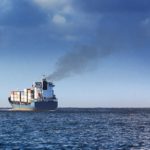New Fuels, New Challenges | Hellenic Shipping News Worldwide

Shipping’s need for decarbonization has increased the needs for alternative fuels and the supply chains to support them. For the most part, both of these prerequisites don’t exist today. In its latest weekly report, shipbroker Intermodal said that “the maritime industry is on the verge of a significant transformation as it navigates through complex challenges and opportunities in 2023. After a period marked by disruptions due to the COVID-19 pandemic and geopolitical tensions, the sector is expected to experience a rebound in global seaborne trade. This resurgence is not happening in isolation; it is paralleled by an increasing commitment to sustainability”.
According to Ms. Chara Georgousi, Research Analyst with Intermodal, “the International Maritime Organization (IMO) has set ambitious milestones to reduce greenhouse gas emissions by 2030 and 2040, with the ultimate goal of achieving net-zero emissions by 2050. These milestones are not mere aspirations but require significant financial investments, estimated to be up to $90 billion for the maritime sector. This capital is vital for the research and development of low-emission ship technologies and sustainable fuel supplies”.

Source: Intermodal
Meanwhile, “in the European Union, new regulations are on the horizon that will expand emissions trading schemes to include maritime transport by 2024. Additionally, more stringent standards on marine fuels are expected to be imposed by 2025. These regulations represent an opportunity for innovation in the sector, pushing not just shipping companies but also fuel suppliers to rethink their strategies and operations. However, the adoption rate of alternative fuels remains modest across the board. A few industry leaders are forming coalitions to accelerate this transition. These companies are actively researching and trialing greener fuel options, including green methanol and bio-methane”, Ms. Georgoussi said.
“In Asia, market dynamics indicate a rising demand for LNG as a bunker fuel, with prices reaching a seven-month high by the end of September. In Indonesia, a consortium is delving into the commercial feasibility of biomethane production from palm oil mill effluent, targeting primarily the energy-hungry Japanese market. This represents a multi-regional approach to sustainable fuel supply chains. The maritime industry is also closely monitoring the potential of ammonia and methanol as future marine fuels. Preliminary studies indicate their significant potential in reducing carbon emissions, but challenges remain. These include not only the high costs associated with their production and limited availability but also the need for new safety measures onboard ships”, Intermodal’s analyst said.

Source: Intermodal
She added that, “biofuels, especially those produced from non-food feedstocks, have entered the mainstream conversation around sustainable marine fuels. For instance, Brazil has recently launched a national biofuel program aiming to significantly reduce its carbon footprint. Nonetheless, global biofuel production still faces hurdles, including the competing demands for feedstock from the food and fertilizer industries”.
“Major marine fuel suppliers are not standing still; they are aligning their decarbonization targets with international regulatory frameworks. Investments are being channeled into research and development projects, and into infrastructure to support a greener mix of marine fuels. In summary, the maritime industry stands at a critical point, trying to balance its resilience in supporting global trade growth with an urgent call for sustainable practices and decarbonization. While challenges are numerous, they are matched by opportunities for innovation and collaborative action”, Ms. Georgousi concluded.
Nikos Roussanoglou, Hellenic Shipping News Worldwide

